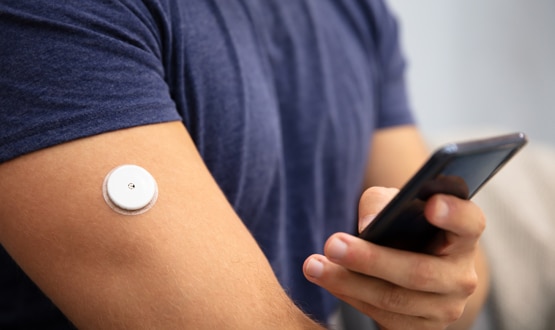Sheffield test bed aims to create perfect patient pathway

A project is underway in Sheffield to use technologies to support patients with multiple long-term health conditions to care for themselves more effectively.
The Perfect Patient Pathway Test Bed, or PEPPA, is one of seven test beds announced by NHS England in January. Led by Sheffield Teaching Hospitals NHS Foundation Trust, it is a partnership between 30 organisations, including both of Sheffield’s universities, the city council and NHS Sheffield Clinical Commissioning Group.
The test beds bring together health organisations, technology companies, universities and charities to investigate whether particular technologies, used in combination, can both reduce the pressure on NHS services and improve the quality of patients’ lives.
Unlike some of the other test beds, PEPPA doesn’t take the form of a trial. Steven Haigh, programme director, described it as “a programme of work to embed technology with people with multiple morbidities”. Haigh said that in Sheffield, there are approximately 40,000 people, between seven and eight percent of the population, with three or more long-term conditions, meeting the definition of multimorbidity.
The project has run a series of engagement workshops with GPs, community nurses, social workers and the public to inform people about what is involved and what it hopes to achieve. There are plans to recruit a number of expert patients with experience and understanding of living with a long-term condition to act as the public voice.
Haigh said that involving patients in decisions about the technologies was essential: “Our absolute intention, wherever possible, is to work on the principle of co-production. This is not about forcing technologies on people who don’t want to embrace it or understand the benefits, it’s about working with populations to help them help us shape whether technologies can help or not.”
Wendy Tindale, scientific director at Sheffield Teaching Hospitals and acting senior responsible officer for the programme, said that the project didn’t require people to be “hugely digitally-enabled” to participate: “Some of the things we’re looking at are very simple and straightforward, such as an automated phone call.”
The test bed will start deployment on a small scale within the next three months. The technologies, which include sensors, wearables and smartphone apps, are designed to help people remain independent by monitoring mobility, risk of falls and general wellbeing. Participants will be able to nominate friends and family to receive automatic alerts if the technology identifies a problem requiring support.
Data from the devices will be collated and analysed to inform the co-ordination of care, both for individuals and groups, said Haigh, before they reach crisis point: “Every year we hit a flu peak at some point during the winter season, and it’s about predicting the number of people, particularly with chronic respiratory disease, that are much more vulnerable and making sure the right interventions are going in. The technology is providing data and information through to community nurses, the GPs, the hospital specialist, so that we can have a much more joined-up, co-ordinated approach to keeping an eye on those individuals and put earlier interventions in.”
The process of evaluation will begin as soon as the technologies are in use, so that successful innovations can be deployed on a wider scale, said Tindale: “What we’re trying to do with that evaluation is to create a legacy programme, so that evaluating as you go on is embedded in our future development, practice and transformation and becomes part of business as usual.”
Tindale said that the project would look at a number of performance measures including “non-elective and elective admissions, quality of life, social isolation, patient care and satisfaction” as well as “efficiency in terms of the costs of the programme and the associated benefits”.



